Tortured for a Better Life
Afghan migrants deported from and residing in Iran report the distressing situation, including harassment, abuse, and restrictions on movement that they face in the neighboring country.
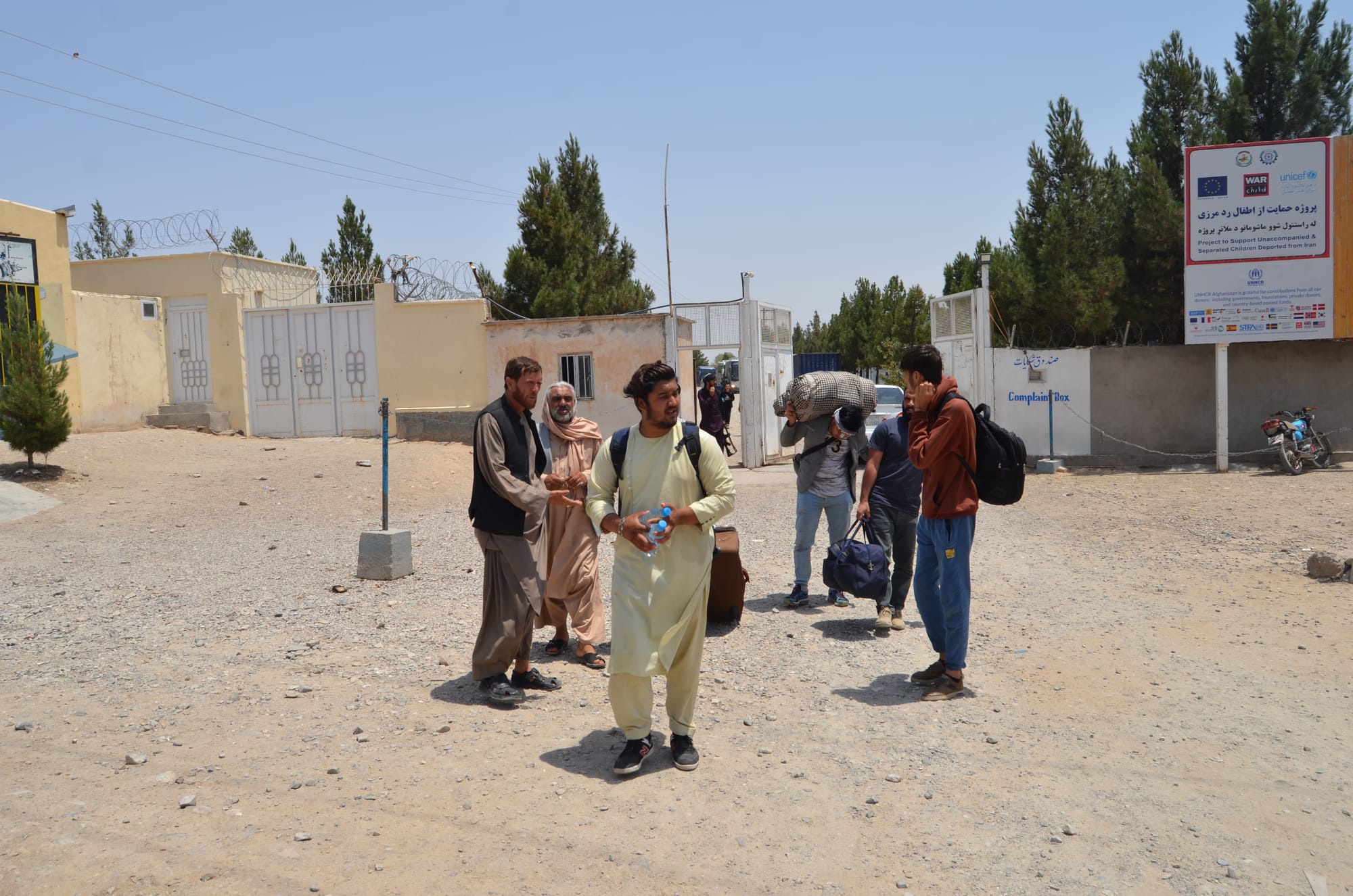
Reporting by Shabana Farahmand, Samira Wafa, and Abdul Karim Azim, and Written by Abdul Ahad Poya
Editor’s note: An earlier version of this story was published in Dari, one of Afghanistan’s main languages. This report was compiled from interviews with Afghans at the Afghan-Iranian border in southwestern Afghanistan’s Nimroz province and Afghans residing in Iran.
"Migration is not just leaving one's own country; it's leaving all material and spiritual possessions. A migrant is a stranger in a foreign land, among foreign people! Living among strangers is the worst form of loneliness," says Aminullah, a resident of Badakhshan province who recently returned from Iran.
According to a statement by the United Nations Refugee Agency (UNHCR), “The Islamic Republic of Iran is host to one of the largest and most protracted refugee situations in the world, having provided asylum to refugees for over forty years. 800,000 refugees currently live in Iran, 20,000 of which are Iraqis and 780,000 are Afghans. There are also 2.6 million undocumented Afghans and 600,000 Afghan passport holders.”
NIMROZ/HERAT, AFGHANISTAN — Afghans deported from Iran speak of the situation on the other side of the border after their return to Afghanistan. All those interviewed spoke about the inhumane treatment they had to endure during their time in the neighboring country. Videos by: Samira Wafa and Abdul Karim Azim
Afghan migrants in Iran and those forcibly returned all agreed that Afghan migrants experience a distressing situation in the neighboring country.
23 year-old Omid, originally from Aliabad district of northern Kunduz province, was deported through the Nimroz border just an hour before speaking with Alive in Afghanistan. He battles the scorching summer sun and the uncertainty ahead as he moves from one spot to another in search of water, his throat dry from the heat and lack of moisture.
Omid traveled to Iran a year ago, and has been deported three times since, returning to Iran every time, “We must endure this misery, we can’t find food or water here (in Afghanistan), we are hungry!”
Omid worked in Tehran, Iran’s capital for nine months, earning 300,000 Toman ($5.78) daily so he could save money for his family back home. However, he was arrested by Iranian police while traveling to Zahedan, the capital of Sistan and Baluchistan, a province bordering both Afghanistan and Pakistan, for work.
“We were taken to the Dupiala camp, verbally humiliated, beaten, and tortured for seven days. They wouldn’t feed us, so we spent our own money. I spent everything I had, and was deported empty-handed,” Omid told Alive in Afghanistan from the Nimroz border.
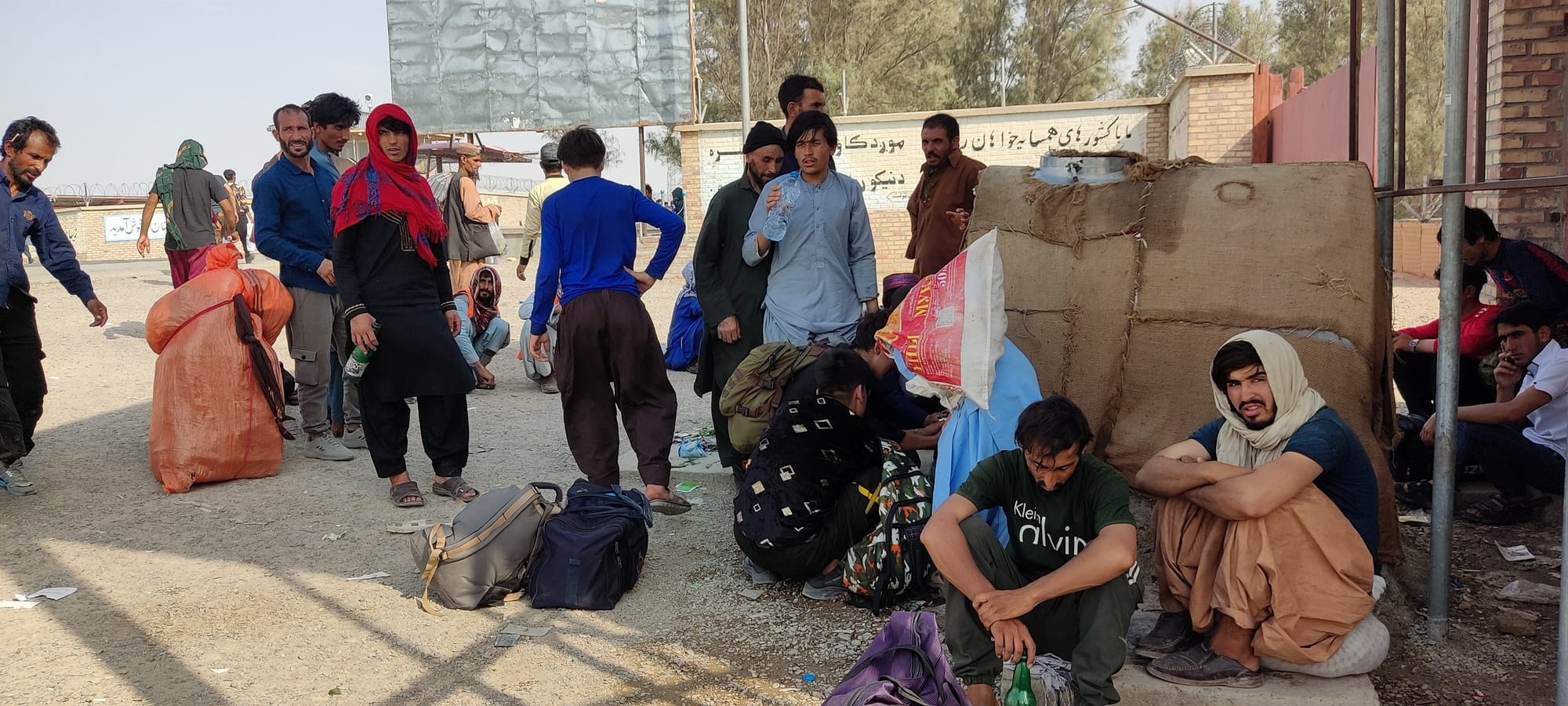
A group of men dressed in multicolored Afghan and Western clothing huddle together in the shade of a white container customized to be used for border operations on the Afghanistan side. Three of the men are from the neighboring province of Helmand to the south.
Akhtar Mohammad, Ehsanullah, and Mohammad Yousuf were working as handymen in Shiraz. According to Akhtar Mohammad, when the trio asked for their salaries, their employer handed them over to Iranian police, and were deported without receiving payment for their work.
Akhtar Mohammad said, “All my belongings, including my cell phone, watch, and money were taken from me in the camp. I have no way of contacting my family now.”
Akhtar Mohammad worked in Iran for three years before he was deported.
40 year-old Hashem, who just exited the registration booth of the International Organization for Migration (IOM), is desperately looking for some food.
“I left my family to go to Iran, worked in the scorching sun, with blisters in my hand, and my back giving me a lot of pain so I could earn some money to put food on the table, I didn’t receive any money. They deported me with the clothes I am wearing,” Hashem told Alive in Afghanistan.
According to Hashem, he traveled legally to Iran, but the Iranian police apprehended him, tore his passport and subjected him to severe beating before he was deported.
“They (Iranian border guards) asked me for a passport at the border, then I was given an electric shock before I could say anything,” Hashem said.
The claims interviewees made about their treatment could not independently be verified by Alive in Afghanistan.
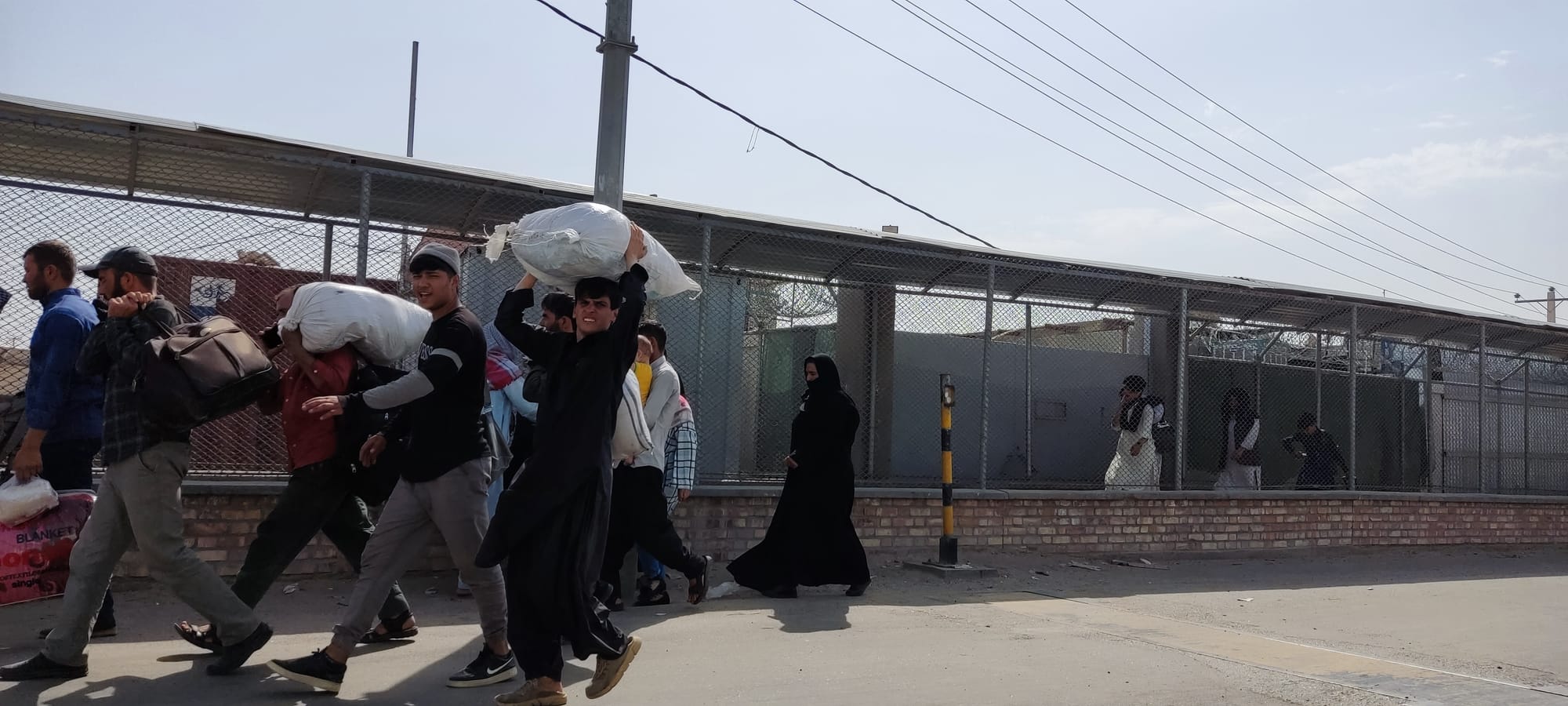
Humayun, a young man from Parwan province, dressed in a red shirt and carrying a black backpack over his right arm, said, “I haven’t eaten anything for three days. [The Iranian security forces] imposed all kinds of cruelty on Afghans so our money was soon finished.”
Humayun asked the Taliban to provide job opportunities for Afghan youth to stop Afghans from becoming refugees in foreign countries.
Rohullah Farizi, originally from Ghazni province, migrated to Iran with his family six years ago. Seven days ago, he was arrested by the Iranian police, severely beaten, and deported. Now his family is left in Shiraz, Iran, and he is in Nimroz waiting for a way to return to Iran..
Although working at a refrigerator factory in Iran legally, the Iranian police paid no attention to his documents at the time of deportation.
“They didn’t give us food inside the camp, there was no water, no proper bathroom, and they took all of our money. I am now left wondering how to return,” Rohullah said.
Another returnee speaking to Alive in Afghanistan on the condition of anonymity said he went to Iran, “Because there was no work (in Afghanistan). I worked there as a laborer. They (Iranian security forces) arrested me in Shiraz. I was inside a camp for four nights, they made us work but we had to endure it.”
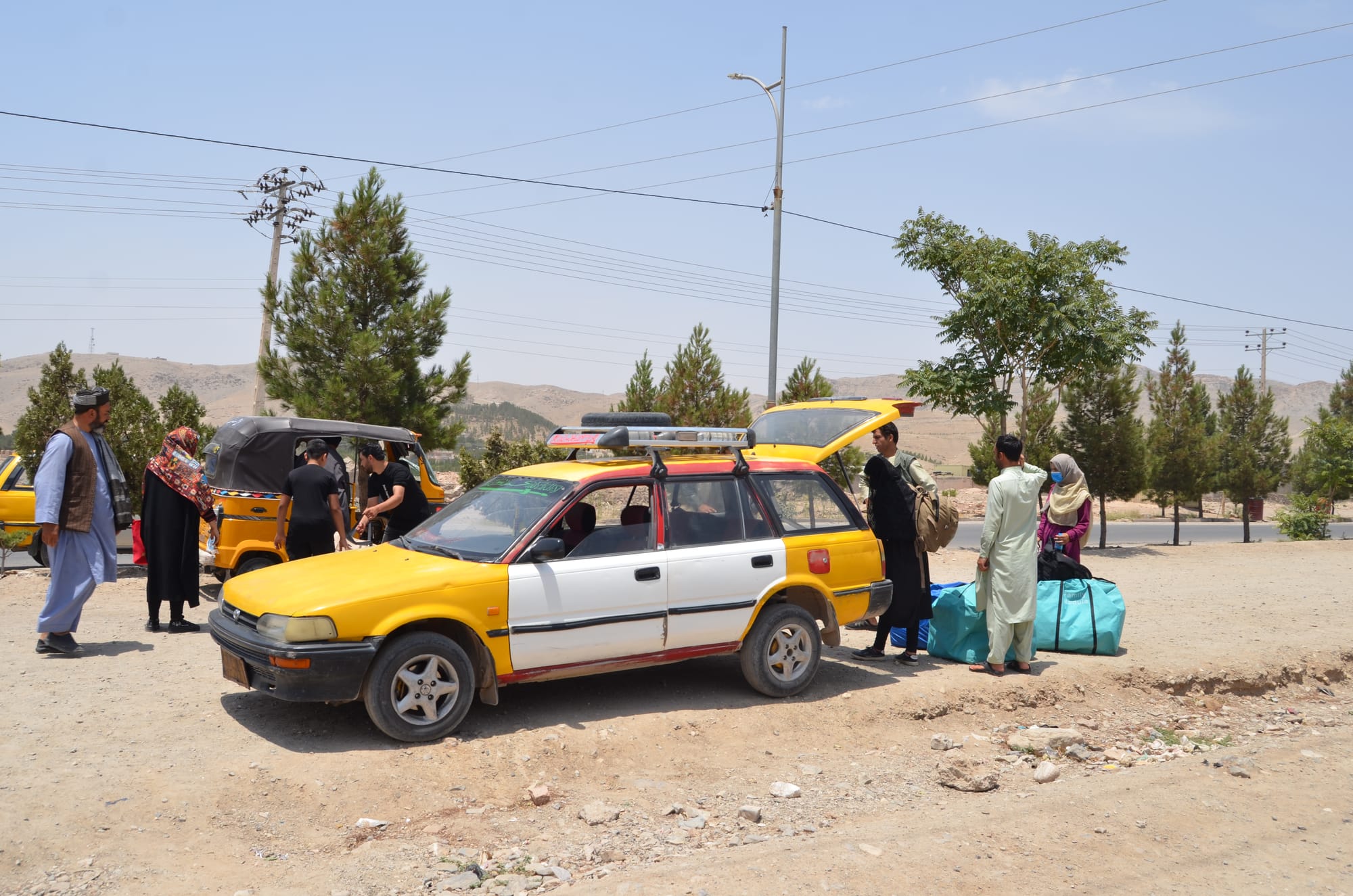
Hanif, another Afghan deported from Iran who just walked across the border to the Afghan side said, “I was in Iran for three years, working for 500,000 Tomans $(9.62) daily. In the end, my employer didn’t pay me 23,000,000 Tomans ($442) in wages and kicked me out of his office. When I called the police to complain, they arrested and deported me.”
According to Hanif, seven other Afghans working with him were deported to Afghanistan without being paid their hard-earned wages.
Hanif said tensions along the Iran-Afghanistan border over water rights in the summer increased Iranian violence towards Afghan migrants residing in the country, “Every bullet fired by the Taliban directly hit us, the unfortunate ones. The Iranian government is now deporting Afghans with or without documents.”
“They took us out of work, didn't even pay us for our efforts, saying ‘there's no place for Afghans here anymore, get lost!’ When they kept us hungry in the camp, they would say, 'You took water from us, go eat in your own country; there's no place for you here’,” Hanif said, adding, “The price of bread increased for Afghans, Iranians would insult Afghans, those with documents had it torn to shreds by authorities and sent away to be deported.”
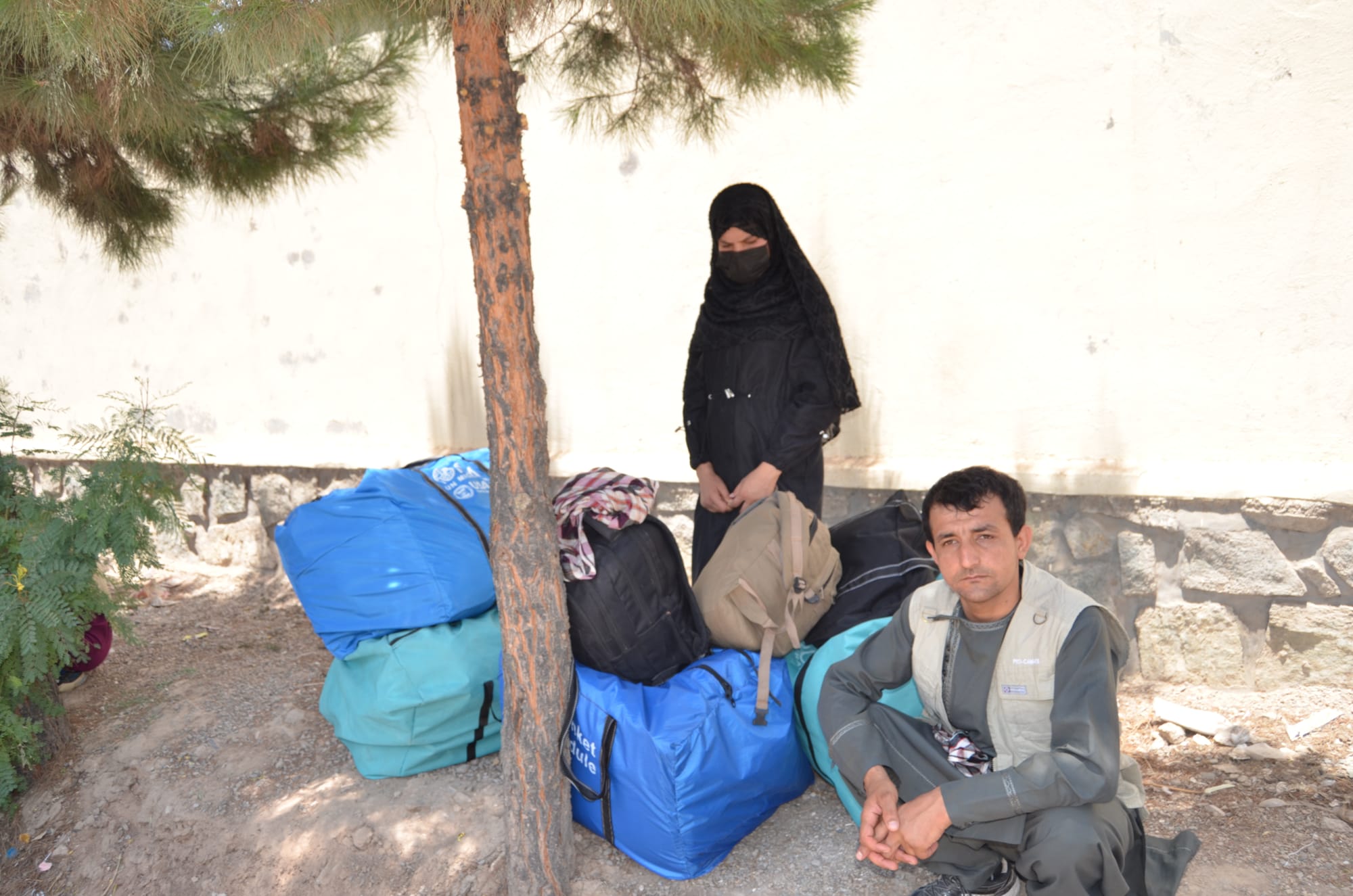
45 year-old Agha Mohammad’s home was turned into rubble a couple of years before his deportation after a rocket hit his home during an intensified period of conflict between the Taliban and former Afghan security forces. Agha was forced to migrate to Iran together with his family of eight.
“Iranian police arrested me at work in Shiraz and deported me without notifying my family,” Agha said. Agha was looking for a way to return to his family after being deported, “No one is interested in becoming a refugee if there is work and peace in their own country.”
A number of Afghan migrants attempting to reach Turkey and EU nations through Iran speak of facing harassment and mistreatment by border police on the Iranian and Turkish borders.
40 year-old Mohammad Saber was arrested by the Iranian police after he and his family tried to cross into Turkey around two months ago. Saber claims he was harassed and tortured by Iranian police following his arrest and deported after a while.
“The Iranian police transferred us to a large camp in the Urmia region of Iran after our arrest. More than 1,000 Afghans were kept in the camp, most were beaten and their money was taken by Iranian soldiers,” Saber claimed. Urmia is located in the western Azerbaijan province of Iran bordering Turkey.
Saber was later transferred to a camp in Tabriz, and then to Afghanistan through the Islam Qala border in western Afghanistan’s Herat province.
"I don't equate a handful of Afghan soil with the entirety of Europe, but the lack of livelihood forced us to migrate," Saber said.
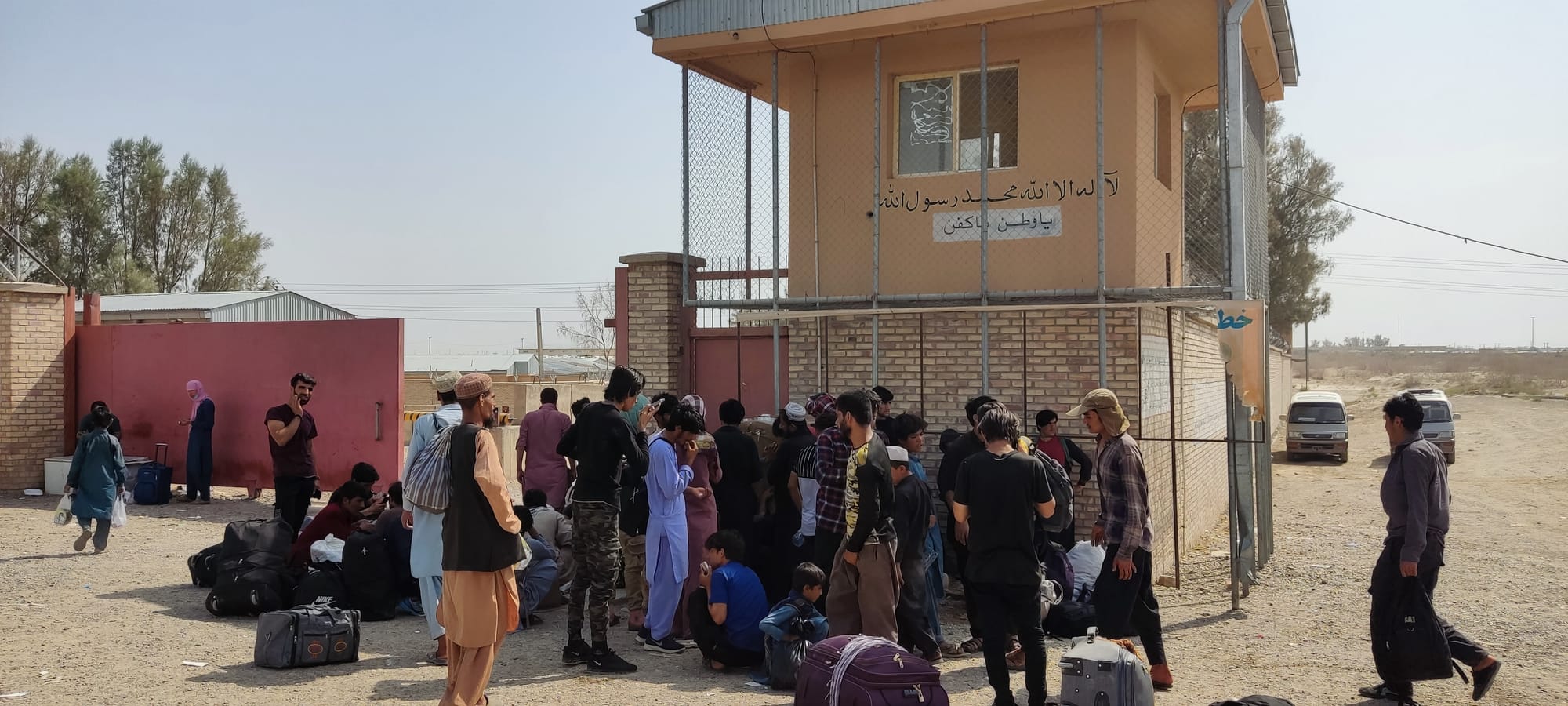
Mohammad Saber’s wife Bibi Kubra said, “We were on the road for two weeks (from Afghanistan) until we arrived in Iran, we were in Iran for two months before heading towards Turkey before our arrest in Urmia.”
“Iranian police would search our bags, take our money and not leave a penny in an Afghans’ pocket. They beat us, insulted us, and they were not humane at all and were very cruel,” Bibi Kubra said.
She asks government officials to provide job opportunities at least for men so that they do not become migrants.
Mohammad Rasool, a resident of northern Sar-e Pul province’s Gosfandi district said, “The Iranian police beat us a lot, the marks still visible on my hands and feet. They would insult us, calling us ‘dirty Afghans’. Didn’t give us water or food, would tell us, ‘go bring water from your lakes, we have no water here’.”
Afghans who used to work and reside in Iran speak of the same treatment by both Iranian citizens and the government during their time in Iran.
Aminullah, a resident of northeastern Badakhshan’s Kishm district, who has recently returned from Iran, talked about the challenges and problems faced by migrants in Iran.
"When I arrived in Iran, I was working in an Iranian's house. Afghans are not valued or respected. In addition, the harassment and mistreatment of Afghan migrants by the Iranian government, beating, deportation to Afghanistan, and forcefully taking money in Iranian society are challenges that all Afghans face. Afghans in Iran are openly discriminated against without the ability to defend themselves."
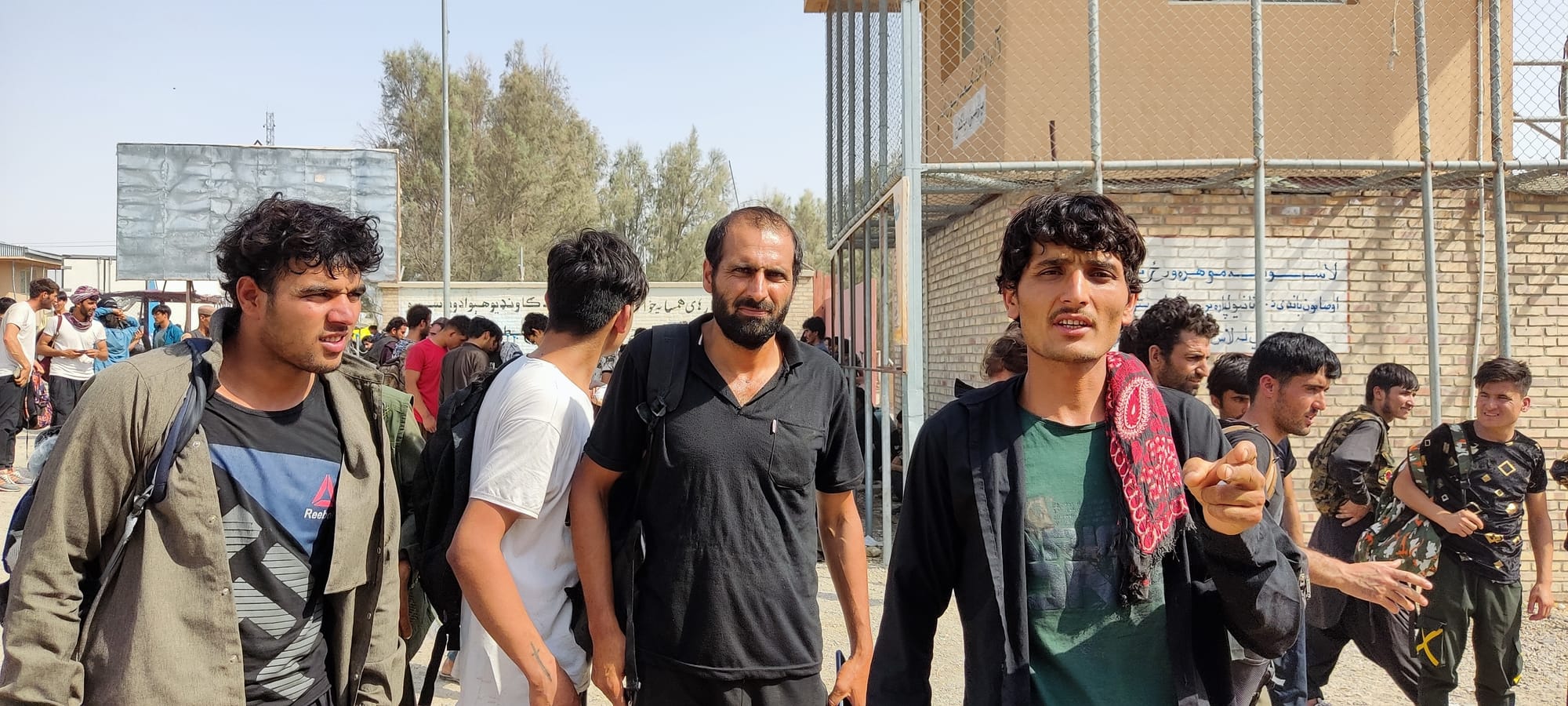
Ahmad Rishad (alias), a chemistry student at Badakhshan University, traveled to Iran due to his family’s deteriorating economic situation stemming from several members of his family becoming unemployed following the Taliban takeover of Afghanistan. Members of Rishad’s family worked in the previous government.
“After a year of migration, I decided to return to my homeland and continue my education because I realized that no country can be my homeland, even though Afghanistan has many challenges,” Rishad told Alive in Afghanistan.
Sayed Mohibullah, another Badakhshan resident who also traveled to Iran for economic reasons, talked about his ordeal during the illegal crossing between the Afghan-Iranian border.
“We walked for almost ten hours, ten of us were squeezed into seating for 4. Difficulty crossing the border, finding employment without documentation, and being exploited and deceived due to the circumstances are some of the challenges faced by Afghans,” Mohibullah said.
Abdul Qadeer, an Afghan citizen living in Mashhad, told Alive in Afghanistan, "The imposed restrictions on Afghan migrants in Mashhad are unbearable. Since the tensions between the Iranian government and the Taliban, they have made the working environment and living conditions for migrants so tight that we are not even allowed to line up to buy bread."
He added that the Iranian government used the excuse of collecting residence documents to round up migrants and then deport them, "Afghans came to Iran out of necessity, and unemployment, not joy. Some left the country because they were former military or government employees. The police arrest Afghans from every corner and street, beat, and deport them."
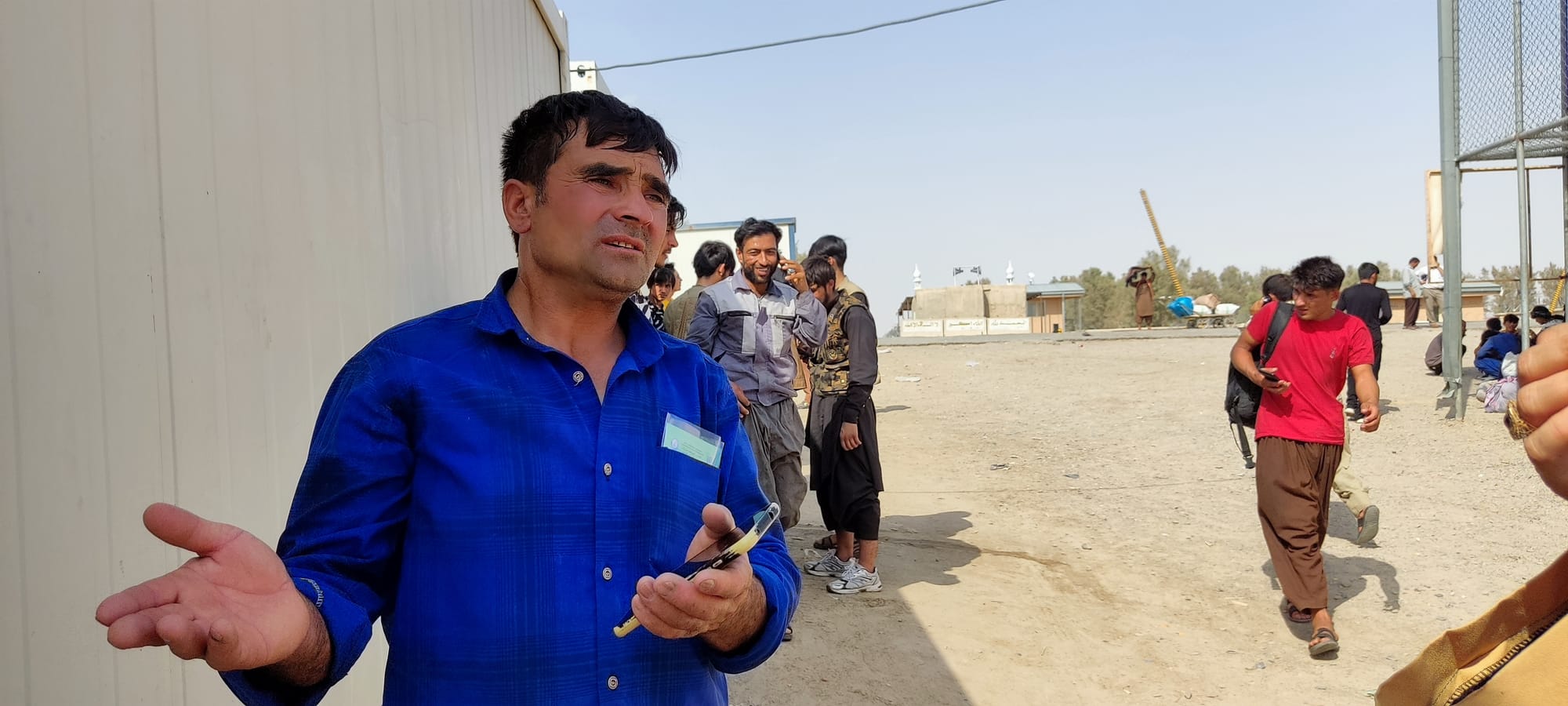
Mirzahussain Sadid, a former Alive in Afghanistan reporter currently residing in Iran, confirmed the everyday challenges Afghan refugees face in Iran, “I can’t even go out for fear of getting arrested because my visa has expired. I have had to hide from the police showing up at work, or my boss has had to bribe them to let it go.”
“Iranian police in plain clothes are on the lookout for undocumented Afghans. There have been instances of Afghans with documents being arrested and deported. It all depends on how the plainclothes police on the lookout for Afghans really feel,” Mirza said.
Sadid added that undocumented Afghans can’t even buy bread, “You must present a bank card to a bakery to buy bread, otherwise, you are out of luck. Those without a bank card either pay to get a black market fake bank id, have their documented relatives buy them stuff, or pay an Iranian citizen to use theirs.”
“Only Afghans with a 1-year visa, and a temporary residence permit can have a bank card, everyone else must scavenge,” Sadid told Alive in Afghanistan.
Maulvi Adam Khan Saad, the head of the Herat province Returnees and Migrants department, told Alive in Afghanistan, "Around two thousand Afghan migrants enter Afghanistan from Iran daily through the Islam Qala border, including families, single individuals, and children under the age of five. Most of them receive cash assistance, including rent and other expenses, from the IOM and UNHCR through the Islam Qala to Herat and from Herat to their respective provinces. However, those returned by the Iranian police are not included in these aids. Only those who voluntarily return benefit from them."
According to him, the Migration Office is trying to provide more facilities for Afghan migrants entering the city of Herat.
